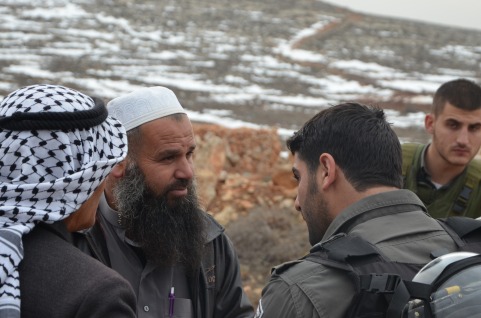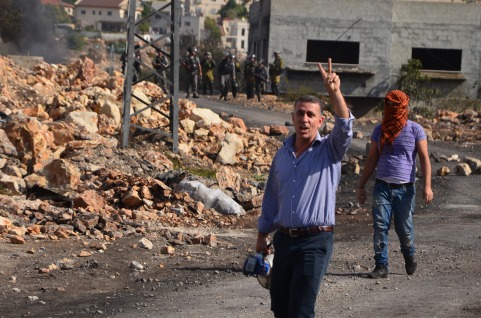Year: 2013
-
Video: Israeli troops fire on Palestinian farmers and international activists in Gaza
27th December 2013 | Resistenza Quotidiana, Silvia Todeschini | Gaza, Occupied Palestine International activists have been accompanying Palestinian farmers to their lands near the separation barrier between the territories occupied in 1948 and the Gaza Strip. We have noticed, in recent days, an increase in the presence of the Zionist occupation forces. A few days…
-
Israeli army confiscates land in Qusra
26th December 2013 | International Solidarity Movement, Nablus Team | Qusra, Occupied Palestine Israeli soldiers have declared a road south of Qusra, in Nablus District, a security zone, thus denying villagers access to over 500 dunams of their farmland. At 10:00 this morning, Israeli soldiers positioned themselves at various strategic points around the village. The commander then held…
-
UPDATED: Murad Eshtewi, head of the Popular Committee of Kafr Qaddum, has been arrested
21st December 2013 | International Solidarity Movement, Nablus Team | Kafr Qaddum, Occupied Palestine Second Update 24th December: A military judge has ruled that Murad Eshtewi will be released from prison with a 7000 NIS bail. Nery Ramati, Murad’s lawyer, argued that it was unreasonable to continue to hold Murad for interrogation as he had not been…



